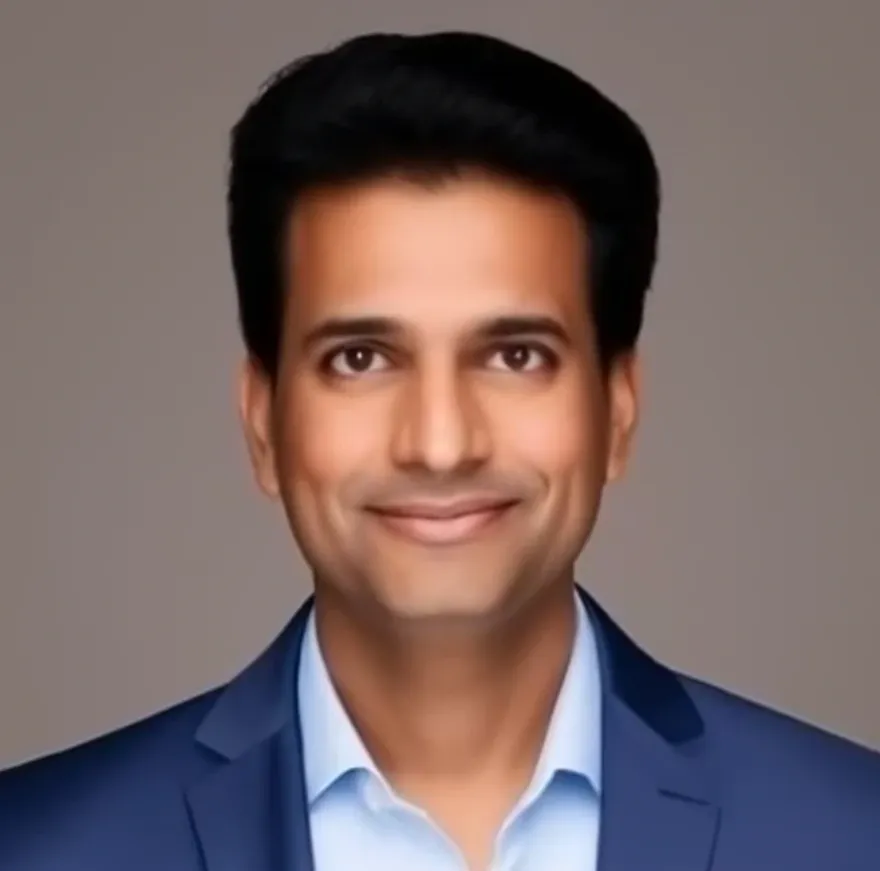How to Become an Income Tax Officer in India
Updated: 23 January 2026, 10:56 am IST
Summary
(This blog is a step-by-step guide for aspirants aiming to become Income Tax Officers in India. It covers eligibility criteria, entrance exams like SSC CGL and UPSC, required qualifications, and the career path. Whether you're in school or college, this guide helps you plan your journey into government service.)
An Income Tax Officer is a highly esteemed and important government position that contributes to the economy of the country significantly. For students inclined toward subjects like taxation and finance, embarking on the journey to become an Income Tax Officer is an excellent career choice. These professionals are responsible for monitoring the tax flow of the country as well as other tax-related issues to make sure that tax filing is done efficiently.
In this post, we are guiding aspirants on how to become Income Tax Officers and related queries. To start with, let's take a look at the roles and responsibilities of these professionals in India.
Get Complete Details From Expert

Who is an Income Tax Officer? What Roles Do They Perform?
Simply put, as the name suggests an income tax officer is a professional who is responsible for enforcing tax laws, conducting audits, and collecting income tax. These tax specialists deal with tax-related tasks of the CBDI or the Central Board of Direct Taxes. They also examine tax accounts of businesses and individuals to make sure that correct tax amounts are being paid by firms and citizens of India.
Among the various duties of an Income Tax Officer include conducting tax assessments, enforcing and collecting tax from tax defaulters, and investigating tax evading and fraud cases. Further, they are also responsible for conducting tax audits, processing refund claims for taxes, tax planning, resolving tax-related disputes, and monitoring and ensuring tax law compliance among various other tasks.
How to Become an Income Tax Officer?
The first step toward your dream of pursuing a career as an income tax officer is to complete your bachelor’s degree and appear for competitive exams like SSC CGL or UPSC. Let’s take a look at the steps below to become an income tax officer.
Eligibility Criteria:
Qualifications – To become an income tax officer, you must earn your bachelor’s degree. So, after completing your 10+2, students can pursue their undergraduate degree in any stream. However, pursuing a commerce degree or a degree in law, accounting, or economics is beneficial.
Age Limit – The age of the students should be between 18 to 30 years. However, there are relaxations for reserved categories as per the government norms.
Steps to Becoming an Income Tax Officer through SSC CGL (Staff Selection Commission - Combined Graduate Level Examination):
1. Complete your Bachelor’s Degree - You must get a bachelor’s degree in any stream, preferably commerce and related subjects.
2. Appear for the SSC CGL Exams held in three tiers
Tier I – This level is called ‘Prelims’ tests and is computer-based (Online) where you get MCQs and objective-type questions in an online exam
Tier II – This is called ‘Mains’ and is similar to tier I exams
Tier III – This is a ‘Descriptive’ exam where you are required to write in a pen-paper mode.
3. Verify documents and medical examination
In the next stage, document verification is done as per your performance in the exams mentioned above. Once the verification is complete, shortlisted candidates go through medical fitness tests and the ones who meet the requirements become an inspector in the income tax department.
Apply Here For Best Online B Com in International Finance & Accounting
Steps to Become an Income Tax Officer Through UPSC:
Although there is no direct recruitment through UPSC to become an Income Tax Officer. However, clearing UPSC can get you into the Indian Revenue Services and you may get the designation of an Assistant Commissioner of Income Tax department.
Here are the steps to follow:
1. Complete your bachelor’s degree – You must get a bachelor’s degree in any stream.
2. Appear for UPSC exams – UPSC exams take place in three levels:
· Preliminary exam – It consists of general papers I and II covering current affairs, logic and reasoning, etc.
· Main exam – It consists of 2 qualifying papers and 7 merit papers. The qualifying papers are on English and a regional language, while the merit papers are general studies and optional subjects chosen
· Personal interview – It assesses students on aspects like personality, communication, aptitude, knowledge, and so on.
3. Find your merit list and check the allotment – Once the results are out a list of merit is prepared as per the performance of the candidates in the above levels of exams. Accordingly, the candidates are allotted designations based on their preference and rank in the merit list. To become an Income Tax Officer, you can select the Indian Revenue Service (IRS)
Call Us For Any Query:- 1800 102 3434
What are the Required Skills to Become an Income Tax Officer?
Income Tax Officer is a critical job role that needs professionals to analyze complex tax regulations and other tax-related tasks. Hence, they need some specific skills as mentioned below:
Communication skills – Candidates are required to have clear and concise communication skills including written and verbal communication to become an income tax officer
Attention to detail – Attention to detail is another important skill required by income tax professionals. They must know how to exercise precision while reviewing financial and tax-related data
Adaptability – These professionals must have skills like agility to be able to adapt to the ever-changing tax legislation and guidelines and to stay abreast of them
Also Read:- How to Become a CA
Take the next step in your career ?
Conclusion
To Conclude, one has to meet the required criteria of eligibility and work hard to qualify for the competitive exams. You may also pursue additional certifications to boost your career prospects. It is important to know the responsibilities that one has to fulfill as an income tax officer to help you select the field and for the journey ahead.
If you are looking to pursue your bachelor’s online, Amity Online University offers you the option to pursue courses like a professional certificate in corporate tax planning and financial analysis, a bachelor’s degree in commerce, or international finance, among others to help you through the journey to become an income tax officer.
Visit Amity Online today to learn more.
Check Out Our Top Online Degree Programs
Explore similar programmes
frequently asked questions
What is the role of an Income Tax Officer?
+An Income Tax Officer (ITO) plays a crucial role in the income tax department. They are responsible for determining the exact income of people and companies by evaluating their assets, financial documents, and liabilities.
What qualifications are required to become an Income Tax Officer?
+There are no specific educational qualifications specified for income tax officers. To become an income tax officer after the 12th, aspirants need to complete their bachelor’s degree in any field. However, students of commerce and accounts background might have an upper hand. After their bachelor’s, they can appear for competitive exams to become income tax officers including SSC CGL or UPSC.
What is the selection process for becoming an Income Tax Officer?
+The selection process includes a written examination, an interview, and a medical examination. Depending on the route you choose to become an income tax officer, the selection process may differ and you may have to prepare accordingly.
How can I prepare for the Income Tax Officer examination?
+To prepare for the examination to become an Income Tax Officer, aspirants are required to study dedicatedly. They also need a deep understanding of the exam pattern and syllabus.
What are the career prospects for an Income Tax Officer?
+The position of an income tax officer is a significant one and offers students a steady career path. These professionals provide a substantial economic impact on the country. They have an excellent scope for career growth.
What is the salary of an Income Tax Officer?
+An income tax officer can earn between Rs 5.2 lakh to 12.9 lakh per year. The salary increases with the experience gained by the candidate.
Are there any specific skills needed to become an Income Tax Officer?
+Some specific skills required include analytical expertise, attention to detail, strong communication skills, and the ability to interpret complex financial data.

